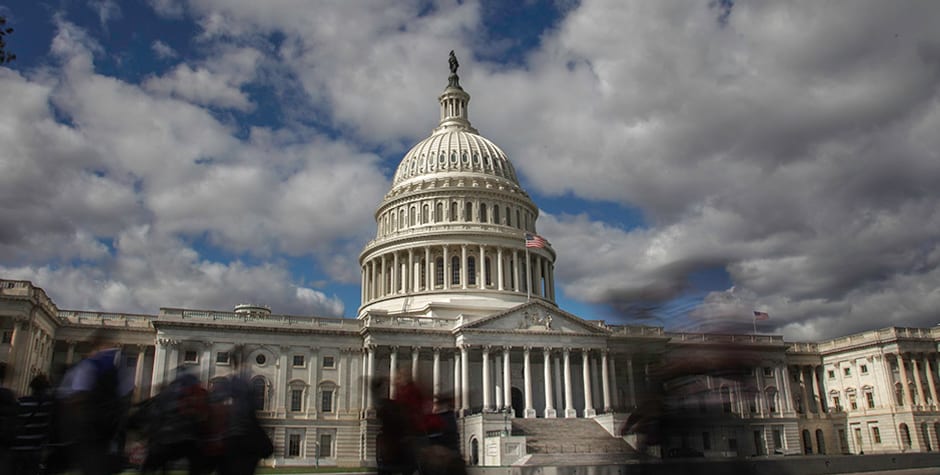CASE ALERT: Is the Deep State Bureaucracy More Powerful Than the President?
Listen tothis article
President Trump has signed a number of crucial Executive orders. One of his most important is Restoring Accountability to Policy-Influencing Positions Within the Federal Workforce. In a decisive move to restore constitutional order to our federal bureaucracy, the President issued this Executive order establishing a new “Schedule Policy/Career” designation for federal employees. This vital reform targets positions of a “confidential, policy-determining, policy-making, or policy-advocating character” – precisely the roles where accountability to the American people is most critical.
This order represents a fundamental return to constitutional principles. For too long, unelected bureaucrats in policy-influencing positions have operated with virtual immunity from presidential oversight, creating what amounts to a “fourth branch” of government never envisioned by our Founding Fathers. There are key constitutional principles at stake:
The Constitution vests ALL Executive power in the President.
The President has a constitutional duty to ensure faithful execution of the laws.
Policy-making authority must remain accountable to the elected President.
In a critical development affecting the constitutional authority of the President to manage the federal workforce, the National Treasury Employees Union (NTEU) has filed a lawsuit challenging this crucial order. This case, National Treasury Employees Union v. Trump, represents a pivotal moment in the ongoing battle to ensure that our government operates efficiently and in accordance with the will of the American people, rather than at the direction of the Deep State.
The Executive order in question contains language that should not be controversial:
Employees in or applicants for Schedule Policy/Career positions are not required to personally or politically support the current President or the policies of the current administration. They are required to faithfully implement administration policies to the best of their ability, consistent with their constitutional oath and the vesting of executive authority solely in the President. Failure to do so is grounds for dismissal.
This crucial reform would enable the President to hold accountable those bureaucrats who actively shape and influence government policy – individuals who must faithfully implement the Administration’s directives in service to the American people.
The legal foundation for the President’s authority to direct his own employees is strong. The Constitution explicitly vests Executive authority in the President. Federal laws recognize the President’s authority to make exceptions to competitive service. By law, “[t]he President may prescribe rules governing the competitive service. The rules shall provide, as nearly as conditions of good administration warrant, for— (1) necessary exceptions of positions from the competitive service.” 5 USC § 3302. Courts have consistently upheld similar presidential actions and orders, as they are the head of the Executive branch and have final authority over its decisions. Courts as far back as 1937 have emphasized that the President may “when he declares the public service demands it in a particular case, suspend a rule of the civil service [–] a practice which, as we have seen, has been indulged without challenge from time to time for half a century.” United States ex rel. Crow v. Mitchell, 89 F.2d 805, 809 (D.C. Cir. 1937).
The union’s lawsuit appears to rest on weak legal arguments that would improperly restrict the President’s constitutional authority to manage the Executive branch. They’re attempting to elevate past administrative regulations defining “policy-making employee” above both statutory law and Executive authority – a position that simply cannot stand under our constitutional framework. The union even attempts in its lawsuit to impose burdensome requirements on presidential authority, demanding “details” and “data” before the President can exercise his clearly established powers. This represents yet another example of unelected bureaucrats trying to obstruct the elected President’s ability to implement the policies voted for by the American people.
The historical precedent is clear: From the first civil service laws through to modern times, our system has always recognized that while merit-based hiring is important, the President must retain authority over policy-determining positions. Federal law contains precisely this acknowledgment, and previous Presidents have exercised this authority through various “Schedule” designations. President Trump needs to have the same ability to direct policy-making employees.
The NTEU, representing 150,000 federal employees across 35 agencies, is attempting to maintain a status quo that shields policy-influencing bureaucrats from accountability. This lawsuit represents exactly the kind of resistance to democratic accountability that the Executive order seeks to address.
This case will likely be a crucial battleground for defending presidential authority and ensuring that our government remains accountable to the American people through their elected President. We will continue to monitor this case closely as it develops in the District Court for the District of Columbia, and we will be prepared to file as the case progresses to defend constitutional presidential authority against an out-of-control Deep State bureaucracy.

